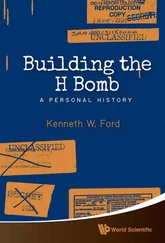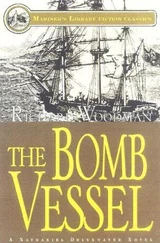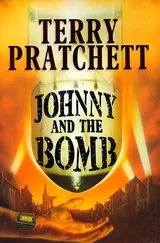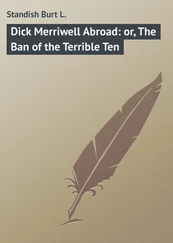That’s right. Yes, that did influence us profoundly.
The book also has this huge appendix called ‘Plan of Campaign against all War and all Preparation for War’. Can you tell me what you remember of that?
What I remember is that we discussed it and, though we never did so, we planned to reprint it as a pamphlet because it showed the politics and many of the facets of the kinds of resistance that we were interested in and promoting. It gave lots of examples showing how you could work at both the individual and at the collective level. It was very influential.
Before we get onto Hugh Brock and the policies and the activities of Operation Gandhi, do you remember much about the other people involved in the organisation? Hilda von Klenze, for instance?
Yes. She was very much involved. She may have come over before the war. She had quite a distinct German accent. Later on, she married Stuart Morris, the head of the PPU. So, from Hilda von Klenze she became Hilda Morris.
Then I remember a disabled lady called Mazella Newman, who was closer to communism than the majority of us. In fact, if you got her onto the subject of the Soviet Union, she used to become quite defensive. I don’t think that she was a member of the party though; it was probably more a matter of sympathy. She also worshiped Gandhi and the other leaders of the liberation movement in India, to the extent that she used to get quite emotional whenever any Indian people came to see us or Gandhi was mentioned. The other thing I remember about her was that she was a regular at Peace News on Wednesday evenings when the paper was packed to go out for arrival at people’s houses on Friday. That was her big thing, in fact. She was a very nice woman.
What about Kathleen Rawlins? Any recollections of her? I mention her particularly because Brock in one article I’ve seen describes her as an ‘ideological’ influence on Operation Gandhi.
That’s true. She was a major contributor to our discussions. I don’t think that she published a great deal. But she was someone we looked to for her knowledge of Gandhi and of Gandhi’s methods. She was very close to Hugh and Eileen Brock and a very significant presence.
A Quaker? I suppose that some of these ladies were. There was certainly a preponderance of women. Another one I might mention is Doris Wheeler.
Yes, several of the meetings were held at her house. The daughter of Tom Wardle, who was another prominent member of Operation Gandhi, was in touch with me about her recently. Tom, by the way, was a clergyman, who had worked in South Africa with Gandhi’s son, Manilal Gandhi, and so was able to give personal examples of his involvement in the campaigns there. I remember having discussions with him during our demonstrations. He was an impressive man who founded something called the Congress of England, which looked at the constructive side of Gandhi’s teaching. Then he also wrote quite a lot for Peace News. Anyway, his daughter sent me some photos that were taken in Doris Wheeler’s house. Her name is Shanti, which means Peace in Hindi. Tom and his wife brought Shanti, who was then a baby, to one of our meetings.
Another person I remember from the discussions was Rufus de Pinto, an artist, always a bit scruffy and unkempt, but a big walker and a very interesting man. A few years after the Mildenhall demo, he died while walking on the hills somewhere. Hugh Brock wrote an excellent obituary of him in Peace News .
Can you tell me something about Hugh now? Some of the meetings, I believe, took place at his house, in Lordship Road, Stoke Newington.
That’s right. Hugh’s house was at number 79 and that was where we held most of our meetings. I’d come up at weekends from Reigate or wherever it was on the train and we’d sit and drink tea—it was all very English—and talk about Gandhi and his ideas, ideas that would lead to the possibility of arrest and imprisonment, so in that sense moving us away from that totally respectable middle-class environment that many of us, I suppose, had grown up in. Usually, Hugh would take the lead. All in all, he was a very genuine, thoughtful man, a Quaker and very self-effacing, though his contribution to the peace movement was huge. He had a background in publishing and was assistant editor of Peace News, before taking over from J. Allen Skinner as editor in 1955. His house, incidentally, was also the headquarters of the Direct Action Committee for a while. Hugh was married to Eileen and they had a daughter named Carolyn and a son, Jeremy. In fact, I have a picture of our Porton Down demonstration with Jeremy in it as a teenager. We all got on well. Hugh and Eileen were lovely people. When I came back to England, after a year in Ghana, towards the end of 1960, Hugh and Eileen put me up; I had a room with them. That, I should add, was a very busy time. It was the start of the Committee of 100 and we were building up to our first demonstration.
Was it via Peace News that you first heard about Operation Gandhi?
Indeed, it was. Which would have been in January 1952, so a couple of months or so after I’d registered as a conscientious objector and then a couple of months again before I went before the tribunal. Peace News carried an account of Operation Gandhi’s first demonstration, which took the form of a sit-down protest in front of the War Office. Anyway, after that I subscribed to the newspaper and became a distributor. I used to be sent several copies from Blackstock Road in London and go from house to house in Reigate selling them, knocking on doors, trying to interest people in the issues. I didn’t get many takers, but I remember one man who invited me in. He was really supportive, but that was probably because he was in the Communist Party. Then there was another man who was also welcoming and sympathetic, who turned out to be a Quaker. So, he was probably already a subscriber. Of course, my whole approach was so random [laughs]. I must have been crazy.
Of course, many older people at this time would have associated Peace News with appeasement and the failures of the 1930s. Did that issue ever come up?
I don’t think it did, at least I don’t remember people associating me with appeasement. The truth is that probably most people just weren’t interested either way.
Getting back to Brock again, when, later on, he wrote up the Operation Gandhi story for Peace News he noted that although the War Office sit-down was hardly a success, it did have three enormous benefits. Not only did it bring David Hoggett and Roger Rawlinson into the organisation—I think Hoggett was some sort of ‘observer’ on the occasion—, but it brought you into it as well. About you, he was particularly flattering. He quotes a letter you wrote to him in May 1952, which, quote, ‘shows something of the mettle of the man who nearly ten years later was to organise the sit-down outside the Ministry of Defence for the Committee of 100 of which he is now the secretary.’ Basically, Brock was having second thoughts about one of Operation Gandhi’s projects, and you were urging him not to lose courage.
I’ll have to look that one up [laughs].
Would you agree that part of your appeal to Brock would have been your relative youth and the fact that like other young people you were full of new ideas and energies?
That seems likely. People like Kathleen Rawlins were a bit older. Other young people who were also conscientious objectors were coming into the movement. You’ve mentioned David Hoggett, but there was also David Graham and Ian Dixon. Later on, those two went off to India together and met up with Vinoba Bhave of the Bhoodan Movement, though they were not all that impressed by him. They were also among the people who volunteered to go with Harold Steele to the site of the first British H-Bomb tests in the Pacific.
Читать дальше

